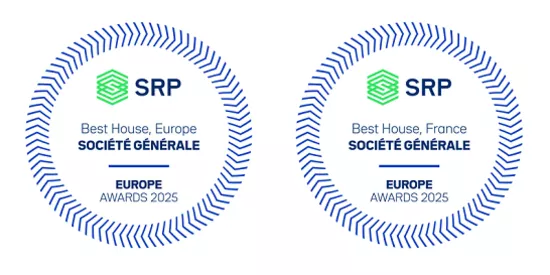
SocGen Steps Up its Clearing Business
Societe Generale (SocGen), a major French bank, is seeking to expand its clearing business for institutional clients, both on the buy-side and especially in the area of repo business and foreign exchange in the longer-term. The bank is promising better pricing for its clients thanks to a broader choice of liquidity providers.
Article from Börsen-Zeitung (1 June 2018) by Dietegen Müller
Click here to read original German version of the article. The below version is an English translation, in case of any discrepancies, German version takes precedence.
Nick Gant, Head of Fixed Income Prime Brokerage Europe, Middle East, Africa and Asia Pacific at the major French bank, Societe Generale, says in an interview with Börsen-Zeitung: “We would like to significantly grow our repo clearing business”. Gant is responsible, amongst other things, for the Agency-Repo-Clearing model, which provides banks and asset managers easier access to a clearing house through a new membership programme. According to Gant, Agency Clearing is primarily intended for second-tier banks and for asset managers.
Societe Generale relies on a so-called “sponsored clearing-model” for buy-side clearing. “A single contract covers all the know-your-customer-agreements”, says Gant. "Moreover, it enables clients to better manage their securities, which means better access to cash to meet potential margin requirements for derivative transactions.” Buy-side contacts can thus focus on their main business without having to concern themselves with more complex operational matters.
A difference of a few basis points
“Through the sponsored clearing-model, we enable clients to settle transactions via the central counterparty, CCP, and, therefore, to limit positions on liquidity providers’ balance sheets.” Depending on the asset mix and their durations, this would cost the client between 2 and 5 basis points. Gant puts the price differentiation between cleared and uncleared business on the buy-side at between 5 and 25 basis points.
Societe Generale sees an advantage in covering a broad asset class spectrum. “We cover different investments in the prime-servicing business, and as a result have the capacity to offer strategic solutions, regardless of the nature of the solution (principal- or agency-clearing)”, adds Gant. On the sell-side, balance-sheet costs play a role in maintaining securities. According to Gant, the costs to banks of using their own balance sheets have increased sharply since 2008. The repo-expert stresses that using a central counterparty improves liquidity, which results in better pricing than in bilateral transactions. Because repo-transactions are netted through a CCP, one can expect better netting-effects and less balance-sheet usage. The latter is especially relevant for interbank business, as well as for the elimination of counterparty risks and access to a larger liquidity pool. “With the sponsored clearing-model, clients who are not members of a CCP get a much broader choice of potential liquidity providers”, reckons Christian Schütze, Director of Prime Services and Head of Cross Asset Secured Financing Sales at Societe Generale Germany.
This has been an issue since the tensions around the cut off dates in the repo market at the end of 2016 and 2017. Especially in 2016, the choice of liquidity providers was dramatically reduced because of the shortage of securities, even for purportedly very liquid German federal bonds. This has however been somewhat mitigated thanks to better preparation by market players and more lending activity by the central banks. According to Schütze, repo-clearing volumes should, therefore, rise further. “In bilateral transactions, you can admittedly find tailored solutions, but also higher settlement- and counterparty-risk which disappears through clearing”, says Schütze. An approach is to take advantage of economies of scale through an agent such as Societe Generale. The driver here is the management of scarce resources and not just the fulfilment of regulatory obligations. “We are optimising banks’ collateral positions. We try to be as balance-sheet efficient as possible and to finance banks' balance sheets at reasonable costs”, says Schütze. According to Julien Romand, Prime Brokerage and Clearing Sales at SocGen, the clearing business is currently going through a period of consolidation and many competitors have exited the market. His institution took a deliberate decision to invest in this market. “We have been conducting clearing business for 30 years, and it is important to consolidate our leadership”, says Romand. “We have offered OTC-Clearing in the past and now also offer Repo-Clearing, and Currency-Clearing. The Currency-Clearing business should become a hot topic in the next couple of years, though it might be a little early right now”, says Romand. In the USA, SocGen is the first institution to offer buy-side clearing for currency contracts, so called “non-deliverable forwards”. “Interest is still manageable. At the moment there are many other topics to work on, on the buy-side”, reckons Romand.
More Securities Lending
For SocGen, consolidation of this position in the clearing market is strongly linked to the securities lending business that is likewise expected to grow. According to Schütze, there have been structural market changes over the past 10 years. He adds, “It is interesting to observe the dynamics between the repo market and securities lending. In recent years, the repo-market has been tight, volumes have dropped and the market has become very illiquid”.
This is due not only to the European Central Bank's bond purchasing programme, but also to the stricter capital requirements for banks. The sales expert goes on to say, “What previously have been simple repo-transactions in equities and bonds are now transactions carried out against non cash collateral, or increasingly settled through central counterparties”.
Desk for equities and bonds
The lending- and repo-business of SocGen is set up as a so-called “Cross Asset Financing Desk”. Schütze stresses that this is not a unique model, but there are only a few of these on the market, which are similarly positioned. “We cover both sides, equities and bonds. We started about 3 years ago and clients appreciate the setup.”
Gant doesn’t exclude the arrival of new competitors offering such clearing services and expanding to include new asset classes, as well as offering collateral management alongside repo and clearing business: “I don't think that silo-thinking has a future. We have bundled different services into one, and this is the key to dealing with regulatory changes”, says Gant. SocGen’s Prime Services franchise, with an estimated market share of 15%, represents one of the three largest brokers and clearers worldwide. The business has been widened since the takeover of Newedge, a joint venture with Credit Agricole in 2014. SocGen is currently a member of 60 derivatives exchanges and all major CCP venues. It has been reported that SocGen is interested in acquiring Commerzbank's Equity Markets & Commodities business (EMC).
© Börsen-Zeitung. Used by agreement with publisher.
Click here for more information on our Prime Services offer
Click here to view all news and updates from Societe Generale Germany



